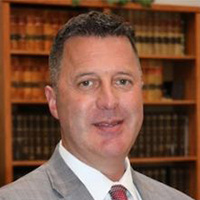Crane Felony Lawyer, Missouri
Not enough matches for Crane Felony lawyer.
Below are all Crane Criminal lawyers.
Scott Gregory Taylor
✓ VERIFIEDDivorce & Family Law, Workers' Compensation, Personal Injury, Criminal
Scott G. Taylor graduated from St. Louis University School of Law in 1993 and was admitted to the Missouri Bar that same year. Scott previously attend... (more)
Jeffrey C. Goodnight
Adoption, Alimony & Spousal Support, Animal Bite, Criminal
Status: In Good Standing
Stuart P. Huffman
Litigation, Estate Planning, Family Law, Criminal, Insurance
Status: In Good Standing
Scott Carter Hinote
Divorce & Family Law, Criminal, Juvenile Law, Elder Law
Status: In Good Standing Licensed: 30 Years
FREE CONSULTATION
CONTACTStephen Seigel
Real Estate, Divorce & Family Law, Criminal, Personal Injury
Status: In Good Standing Licensed: 53 Years
FREE CONSULTATION
CONTACT

